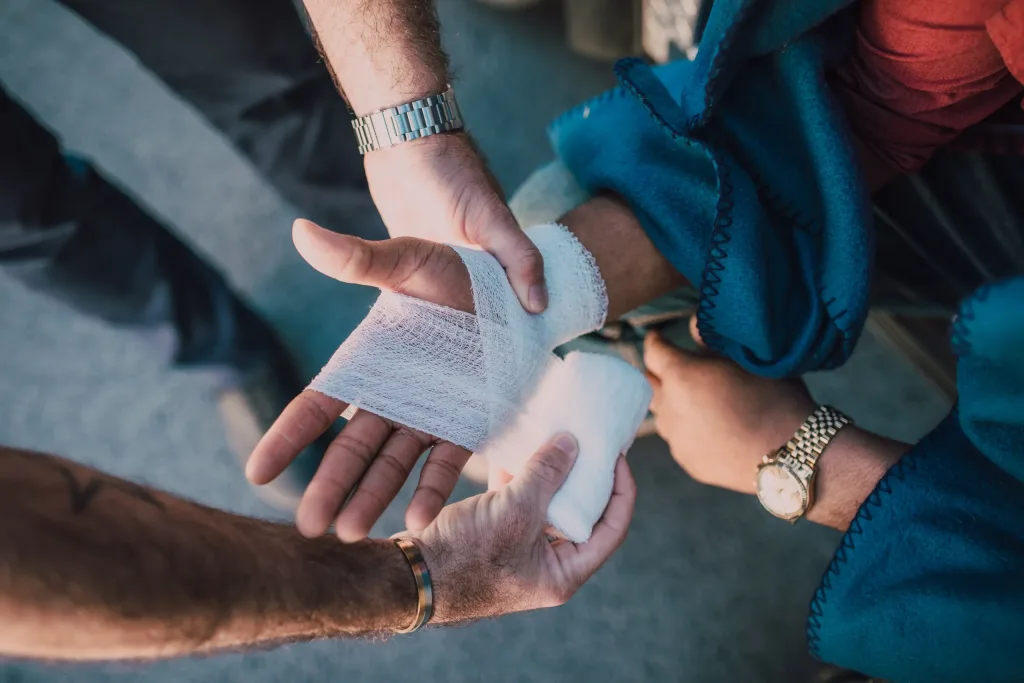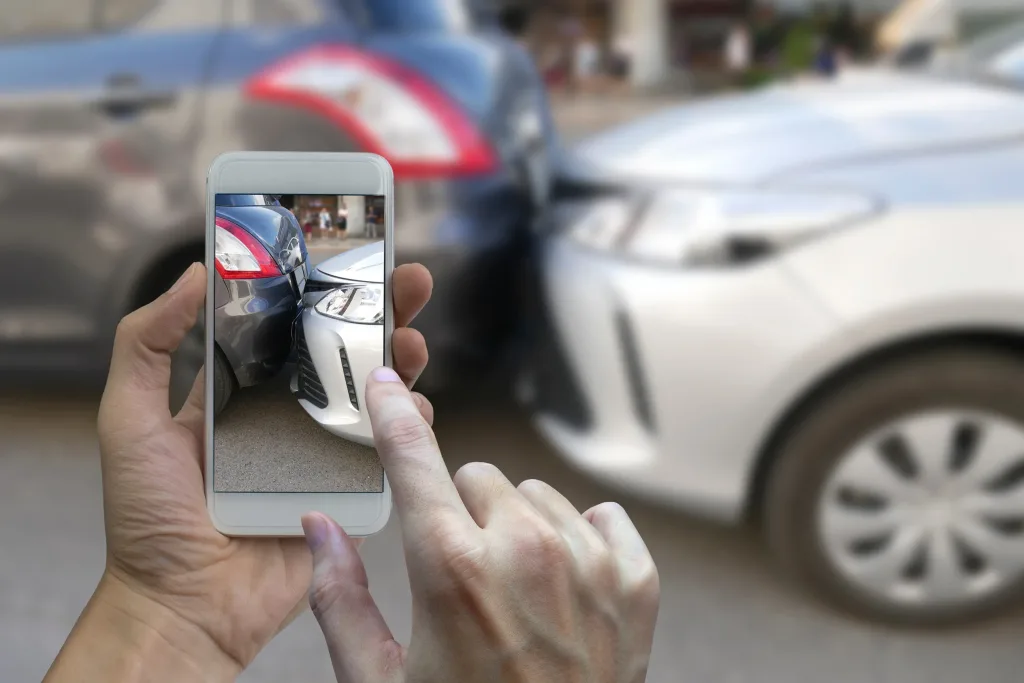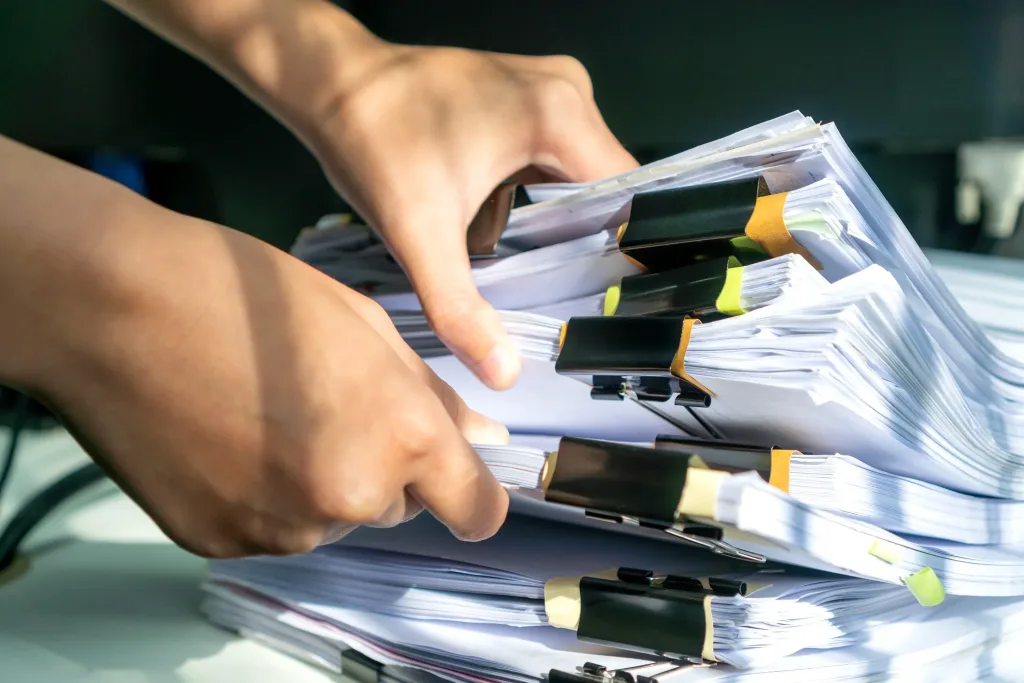
There are countless ways a personal injury case can come about, from car accidents to workplace accidents. This means that the evidence available will vary widely from case to case. However, there are many pieces of evidence that will be useful for any personal injury claim. This article will cover both the universal and case-specific evidence items.
While evidence will always be a key factor in personal injury cases, even the best proof can fall short of achieving you the compensation you deserve without the help of an experienced personal injury attorney. The Texas legal system is complicated and confusing, and an insurance company will usually do whatever they can to lower your claim amount.
Here at Abraham Watkins, our personal injury lawyer team has been fighting for justice for our clients for over 70 years. We have the skills and knowledge required to assemble your evidence into an extremely strong case and use it to negotiate a favorable settlement with the insurance companies involved, or fight in your corner in court if necessary.
If an accident occurred that was not your fault, we can help you maximize the compensation from your personal injury claim. It all starts with you calling for a free consultation, which will take place at no obligation and be completely covered by the attorney-client relationship of confidentiality.
For a free consultation or to request our legal services, call us at 713-535-9319 today.
The Types of Evidence Available in Personal Injury Cases
First, we will run through the different types of common evidence that can be used to build a strong personal injury case.
We will include how to best approach collecting this evidence and how your personal injury lawyer may be able to help you acquire it.
Photographic Images

Gathering evidence from the accident scene has never been easier, thanks to the fact that almost all of us have instant access to a high-quality camera in our cell phones.
The type of photo evidence you should collect will depend on what accident occurred, but here are some guidelines of what to photograph:
- For a car accident, take photographs of any environmental damage, tire skid marks, broken glass, damage to yours and other vehicles, and all registration plates present
- If your accident happened due to property negligence, take photographs of the trip hazard, spilled liquid, dangerous terrain or whatever else may have contributed to the accident
- Your physical injuries, both as soon as it is safe to do so and at every notable stage in the recovery process
When preserving evidence using photography, try to ensure that date and time stamps are enabled on your device. This will make the photographs stronger evidence for your personal injury claim.
Other Video Surveillance Equipment
Cell phones are not the only recording device that could capture necessary evidence for your personal injury claim.
Footage from security cameras, dashcams, and other continuous recording devices often make excellent evidence. This is because rather than being limited to the aftermath, they often capture the opposing party’s negligence, someone else’s carelessness, or even weather patterns that could have contributed to the accident risk.
Getting access to surveillance footage is not always an easy task. However, even old footage is often preserved for a long time in a backup device. A good personal injury attorney will fight tirelessly to gather evidence from these sources.
Physical Evidence
Physical items are generally left at the scene of an accident. However, if you see a tangible object that could serve as physical evidence of the accident, you should document and preserve it.
This will be different for each type of accident. It may be a piece of the negligent party’s automobile that broke off the collision or a scrap of clothing.
It is important that you only recover these items when it is absolutely safe to do so. Once you have them, you should keep them in a sealed container and avoid interfering with them in any way.
Incident Reports
Often when a personal injury incident occurs, especially if it is a car accident, it may be necessary to contact emergency services.
Reports by police, paramedics, and the fire service can provide details that act as key evidence and massively increase your chance of winning a personal injury case.
If you are struggling to get hold of a police report or any other report by the emergency services, your lawyer will be able to help you.
Witness Statements
If you are pursuing a personal injury claim, it is hard to overstate the importance of witness statements. These may be provided by an obvious other party, such as by friends or family members. However, all people involved or at the scene of the accident may provide valuable testimony.
Therefore, you should attempt to get the following details from everyone present at the time the injuries were sustained:
- First and last name
- Contact telephone number
- Address
- Registration plate details, if you were involved in a car accident, as well as the insurance details of any other drivers directly involved
Employment Documentation
If you want the best chance of being able to successfully recover compensation for lost wages that you were not able to earn while recovering from your injuries, there are several pieces of evidence that can help.
Pay stubs or equivalent documents showing your wages during the time leading up to the accident are important for demonstrating the level of financial damage your accident caused.
Similarly, you should retain all correspondence with your employer concerning the time you were forced to take off from work to recover from your injuries.
Other Bills Associated With Your Injuries

There are many ways an accident can cause financial damage, other than the obvious ones. You may need to use public transport to get to essential appointments after a car accident, or you may need to pay for additional childcare if your injuries prevent you from living life as you did before.
If in doubt, keep hold of any bill you believe would have been avoided if it was not for your accident or injuries.
Copies of Your Insurance Documents
Since you will be dealing with insurance companies when making a claim for an accident, it is important to have copies of all of your insurance policies and insurance statements.
This will help ensure your lawyer misses nothing important and gives them an upper hand when negotiating with the insurance companies in question.
Get Everything in Writing
This applies across a number of the categories covered above. If you are corresponding with your employer, with the emergency services, or any other parties relevant to your case, do so in writing.
This is because their response can then act as a piece of evidence, whereas if something is divulged in a passing phone call, it is gone forever.
However, be aware this can also act against you, as we will discuss in the next section.
Beware of Contact with Your Insurance Company
When you are making a personal injury claim, you will likely not be the only party collecting evidence. Any insurance company involved will try to collect evidence to devalue your claim, as this ultimately saves them money.
To do this they may:
- Trick you into divulging unnecessary details about your accident
- Try to make you agree to a recorded interview
- Get you to sign hurtful documents
Do not do any of these things. Only ever tell insurance companies the bare minimum amount of information necessary, preferably only after discussing it with a representative from your law firm first.
Time is of the Essence
Often in personal injury cases, you and the insurance companies involved will still not be the only ones involved in collecting evidence. If your injury was due to negligence, the party causing this negligence will often have their own lawyers and be looking to protect their own interests.
For this reason, you need to act quickly to collect evidence before anything can happen to it.
Even if malicious activity does not take place, proof can easily be lost over time, and eyewitness accounts can become uncontactable. You need to move fast to build the most solid case possible.
Your Lawyer Can Help You Collect Evidence and Build a Case
Some evidence falls almost entirely on you to collect, such as photographs from the scene of the accident.
However, your lawyer can help you acquire more difficult items of evidence like accident reports or security camera footage. They will have methods for dealing with difficult people and more experience with the most effective ways to get hold of hard-to-find evidence.
As well as helping you collect this evidence, they will also help you assemble it into the strongest case possible for your circumstances. Even if you have collected all the evidence yourself, involving an experienced law firm is the best way to achieve success in your case.
We Work on a Contingency Basis
In the information above, we have seen many of the ways a lawyer can help you build the strongest case possible. Unfortunately, people often mistakenly believe this is out of their price range.
Luckily, here at Abraham Watkins, we believe that financial justice should be available to everyone in the event of an accident. That is why all our personal injury law work takes place on a contingency basis.
That means your entire case will be no-win-no-fee, with no hidden or upfront costs. If your case is unsuccessful, it will not cost you a cent. If it is successful, all of the fees will only be taken as a percentage of your final settlement.
Speak With a Personal Injury Lawyer Today
If you have been injured in an accident that was not your fault, you could be entitled to compensation. To maximize this compensation, you need to gather as much proof as possible and assemble it into the strongest case possible. For the best of success with this, you need a lawyer by your side.
Here at Abraham Watkins, our team has been practicing personal injury law for more than 70 years. We are happy to offer you a free consultation to discuss your case at no obligation in a completely confidential environment.
Our lines are always open. For more information, call us today at 713-535-9319.
